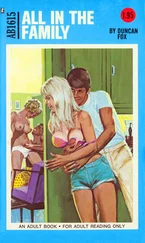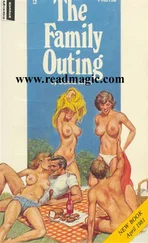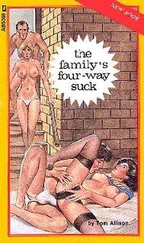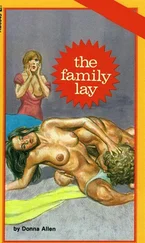“What?”
“Her very words. I’ll never forget it. No such people as Anne, Stephen, Fleur and George Donbavand. Those are false names, she said, because they’re in hiding. In answer to my question from last time—was someone out to get her children?—she told me that, yes, she feared they were. Someone was out to get all of them, hence the assumed identities.”
Is this some kind of joke? Apparently not.
“How long had Fleur and George been at the school when you had this conversation?” There’s so much I want to ask, I don’t know where to start.
“Hm.” Lesley’s mouth twists as she tries to work it out. “I could dig out my old diaries and check, but . . . Fleur and George were both still in Juniors.”
“A long time ago, then?”
“Oh yes. We at Beaconwood have been living with this knowledge of the threat to the Donbavands for years. Each new member of staff we hire has to be informed. Lachlan’ll tell you.”
“It’s true, Justine. I think we must be the most security-conscious school in the country because of it. Once you hear something like that, you can’t help but worry. You’re in charge of protecting two students whose parents have told you they’re endangered. You start to see threats everywhere: visiting speakers, other children’s parents . . .”
“We got used to it,” says Lesley. “You get used to anything, don’t you? We watched George and Fleur like hawks all day long, vetted everyone who entered the building as diligently as we could. Anne Donbavand asked to be informed in advance of anyone Fleur and George might come into contact with, so that she could vet them too.”
“It was time-consuming,” says Lachlan. “Long emails had to be sent every week: the names of anyone new who was due to be in school the following week, any new families starting at the school . . .”
“Wait. You’re telling me that when Ellen came to Beaconwood, you had to email Anne Donbavand and give her our names, so that she could check us out?”
Lachlan hard-blinks at me a few times before turning to Lesley. He wants her to deliver the unwelcome news.
“I don’t think she can have investigated every name we gave her, else she’d have gotten no work done—the woman’s a workaholic from what I can gather—but yes,” says Lesley. “When I knew that Ellen was coming to Beaconwood, I emailed Anne to tell her. I did it whenever we had a new family.”
I’m annoyed to find myself believing what I’m hearing: believing, at least, that Lesley’s no longer lying to me. I’d be happier if I still had doubts. This story is already too disturbing, and we haven’t gotten to the expulsion part. Sorry: pretend expulsion.
“The first time Alex and I came to look round, without Ellen—did you warn Anne Donbavand in advance that we were coming?”
“Yes.”
“This is unbelievable.”
“Isn’t it just? Thing is, we’ve never had a visitor to the school for whom secrecy is a priority. You and Alex weren’t concerned that no one should find out you’d been here, were you?”
“No, but—”
“No one is,” Lesley glides smoothly over my unfinished objection. “I figured it wouldn’t do any harm to anyone else if I . . . kept Anne informed. Kept her off my back, more importantly.”
“Didn’t she also threaten to take Fleur and George out of Beaconwood?” asks Lachlan.
“Yes. Sorry, I missed out that part. It became clear at a certain point that if we weren’t prepared to put these . . . reassurance measures in place, the ones Anne demanded, then she would remove both children.” Lesley’s mouth sets in a firm line. “I wasn’t having that. At least with Fleur and George at Beaconwood I could guarantee they’d be exposed to six hours of sanity, five days a week.”
“Hold on.” I’m confused. “Are you saying Anne’s insane, and there’s no real threat to the family?”
“No, I believed her,” Lesley says. “But think about living like that—in hiding, knowing that if anyone finds out who you are, it might be curtains for you. Imagine it! Anyone’d go loopy. I think that’s what happened to Anne Donbavand. She wasn’t as bad when I first knew her. She got worse. Told me she’d nearly not risked sending George and Fleur to school in their new life. Toss-up between us and homeschooling, it was. I thought about poor old Fleur and George in that house all day long, with Anne’s dark, paranoid fears for company—frankly, I’d have done anything to keep them here, as long as it didn’t harm anyone else. So, yes, I went along with most of Anne’s strange requests.”
“You believe her, yet she’s also paranoid?” I say.
“She’s a woman who makes heavy weather of things.” Lesley’s tone suggests this is a serious understatement. “For all I know, the danger she’s forever referring to isn’t something that would have induced a more . . . well-balanced person to start a new life with a new name.”
“Wait. You’re surely not saying you don’t know what the threat is?”
“That’s right.”
“Well, who’s making it?”
“I don’t know that either.”
Person or persons unknown. This would be funny if it weren’t so appalling.
“So you’ve brought me in here to tell me a story you don’t know yourself. Fantastic.”
“I’m telling you what I know,” says Lesley. “Should have done it sooner. I’m ashamed that it took Lachlan’s involvement to make me see sense, but . . .”
Here comes the excuse.
“Paranoid neurosis—it’s a funny thing. Ingest enough and it starts to infect you. Anne has impressed on me so many times that I must never breathe a word to anyone. I was afraid that if I told you the truth, something might happen to Fleur and George.”
“Wow.” Breathe, Justine, breathe. “You’re not joking, are you? You’re actually serious about all of this.”
Two troubled faces stare back at me.
Not joking, then. Definitely not. Joking ruled out, despite being the only halfway plausible option.
“So you don’t know who’s after the Donbavands, or why, or what they used to be called before they were the Donbavands?”
Lesley nods. “Anne said—and on this I was with her all the way—it would be reckless of her to tell me. The less we at Beaconwood know, the more protected we are. I’ve no desire to be privy to details that might put my colleagues and pupils in danger.”
“Is that what Anne said? That knowing would put you at risk?”
“Not explicitly. She said I was safer not knowing. I don’t think she was necessarily implying that being in possession of the full story would be life-threatening for me. Could have been a case of ‘Trust me, you’d rather not know.’ She was dead right! Something so dreadful that you’d flee your former life and change your name . . . I’m happy to remain in the dark, thank you very much!”
Hearing this, I could almost start to suspect Lesley of lying all over again. Is she an idiot? There’s no greater danger than not knowing exactly what and who you’re up against. However awful the truth might be, how could Lesley have preferred to be ignorant?
“Have you—”
Loud knocking interrupts my question.
Our drinks are brought in not by Helen Minchin but by Kendra Squires. She puts the tray down on the table with a nervous smile. I manage not to push her out of the way to get to my coffee, which smells divine. I’m going to pretend to myself that I have no intention of drinking it until I take the first sip. Then I’ll down the rest in a few gulps, so that I can get it over with quickly and resolve never to weaken again. That should trim away a bit of the feeling of failure at each end.
“You were saying,” Lesley picks up once Kendra’s gone. “Have I . . . ?”
Читать дальше











